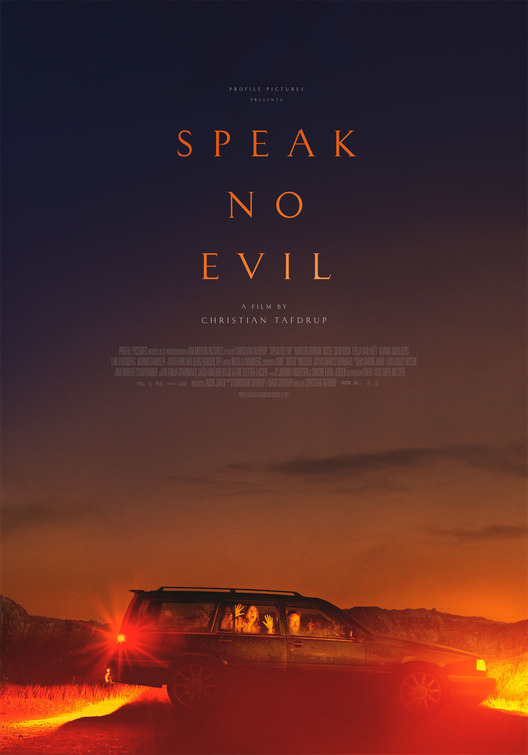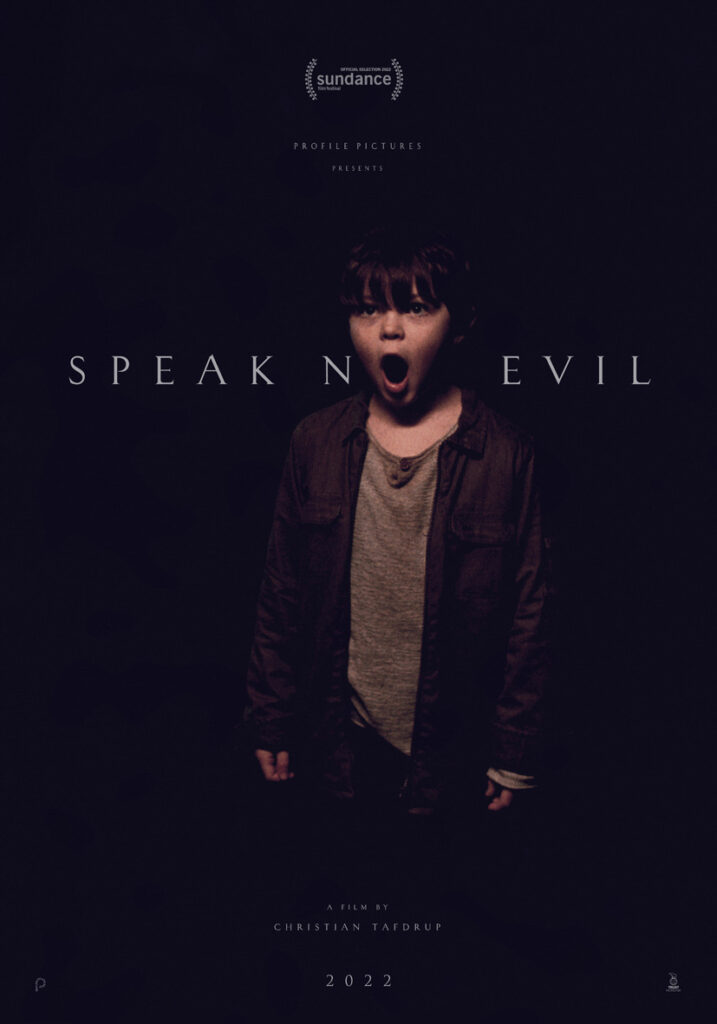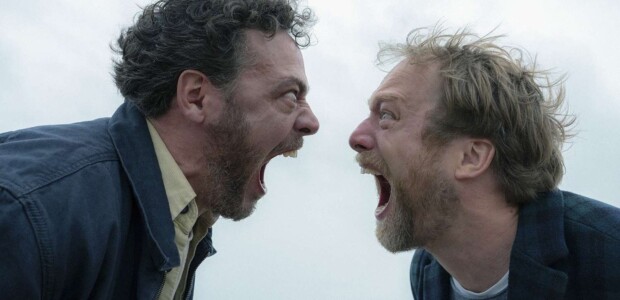Most characters don’t make it out alive in horror movies. Some survive until the final reel if they’re lucky, while others become bodies on the slab before the titles have even run! They are sacrifices for us bloodthirsty fans, but there’s more to them than that. They have wants never met. Stories never properly finished. In Always the Final Kill, Never the Final Girl, writer Matt Konopka digs up these poor souls lost under the shadow of heroes to give them the proper attention they deserve.

Sometimes, I feel like one of the few people who appreciated Christian Tafdrup’s exercise in awkward terror, SPEAK NO EVIL. My first viewing of the film came during Sundance 2022. While it unnerved and gutted me like a fish, it received mixed reviews. Many of those leaning towards the negative side were either angered by the film’s nihilistic ending, or found the whole thing to be pointless. All fair. But with James Watkins’ remake out of Blumhouse recently hitting theaters — stepping over the still warm body of the original unleashed just two years ago — I thought it might be time to take a look back at Tafdrup’s divisive feature and what makes it so powerful…namely, the fates of Bjørn (Morten Burian) and his family.
While on holiday, Bjørn and his wife, Louise (Sidsel Siem Koch) meet couple Patrick (Fedja van Huêt) and Karin (Karina Smulders). The four hit it off, and some months later, Bjørn receives an invitation from Patrick to visit their family in the Dutch countryside. Louise is opposed to the idea of spending a weekend with people they barely know, but after some convincing, they’re off. Things immediately seem strange, from their daughter, Agnes (Liva Forsberg) being forced to share a room with tongue-less boy, Abel (Marius Damslev) to Patrick forcing Louise to eat meat (she’s a vegetarian). Polite Danish people, Bjørn shrugs it all off, the boundaries of his family’s niceness pushed to the edge as their stay becomes more and more sinister.
For those unaware, the title SPEAK NO EVIL originates from The Wise Monkeys established in Japan around the 16th century. A trio of small monkey statuettes depicting each one either covering their eyes, their ears, or their mouth, they embody the saying “See no evil, hear no evil, speak no evil.” The idea is that if you neither speak, hear nor see evil, you will be spared from it. An optimistic thought, but foolish in practice. As the phrase has often been used and is presented here, to become ignorant of evil grants it more power over an individual, not less. Because when we choose to ignore the existence of evil, we allow it free reign to do as it pleases. Give it even an inch, and the evil of men will walk all over those unwilling to confront it. Another recent film, Jonathan Glazer’s THE ZONE OF INTEREST, struck a chilling chord with this very concept, observing the cruelty of simply pretending atrocities aren’t happening right underneath your nose. Our survival instinct kicks in, deciding that to acknowledge evil means to bring the threat to ourselves. But just because that reaction is only human doesn’t make it right.
When we first meet Bjørn, he is a man dissatisfied with his life. He’s grown bored with his job, with his family, with himself. Change beckons to him like a Siren’s call, and he’s all too ready to give into its seduction. Said seduction arrives in the form of Patrick when he approaches Bjørn at the hotel pool and asks for the chair we can only assume Agnes is using. Bjørn gives in without hesitation and allows him to have it. Seconds later, he watches Patrick drinking with his wife and having a good time, only to be met with disappointment when he asks Louise if she wants a drink and she turns him down. He doesn’t know it yet, but he’s just entered a game with Patrick in which the other man is the hunter and Bjørn, the hunted. Though a small act, his giving away of the chair speaks volumes as to the kind of man he is. Polite. Timid, perhaps. And in Patrick’s mind, weak. In that simple instance, he has told Patrick that he will not stand up for himself or his family. He might as well have stuck his face into a bear trap.
From the time they arrive at the couple’s isolated home until the gut-wrenching final moments, Bjørn chooses to keep his eyes, ears and mouth shut to the actions of Patrick and Karin. He says nothing when Patrick force-feeds his vegetarian wife meat. He closes his eyes to the fact that there is something seriously wrong with Abel. He doesn’t listen when Louise expresses her discomfort. Bjørn wants so badly to be accepted by his new friend, to have the sort of freedom that he has, that he shields himself from every obvious warning sign. See no evil, right? Sune Kølster’s ominous score blares over scenes that seem harmless on the surface — such as simply walking through the fields — as if to shout at our protagonists to pack up and leave. Tafdrup wants us to be keenly aware of the danger from the beginning, because he wants us to know the frustration of watching evil triumph over ignorance.
Which brings us to that highly divisive ending. After discovering Abel’s body and learning his new friends are killers, Bjørn rushes his family out of the house, giving them no reason other than they must leave. And still, he stays quiet after Patrick and Karin track them down and force them into their car. Then, in an instance that will infuriate each and every viewer, Bjørn watches as Agnes’ tongue is cut out and proceeds to do nothing as he and his wife are marched out to the field, made to remove their clothes, and stoned to death, all with their killers unarmed. “Why are you doing this?”, asks Louise. “Because you let me,” responds Patrick in a line that reaches the same chilling heights as THE STRANGERS’ “because you were home.” Because they let them. Because they chose ignorance. Because they stayed silent when they should have spoken up.

Many audiences have expressed frustration over that ending, dumbfounded as to why Patrick and Louise do nothing in the face of evil. Appreciate the meaning or not, though, the doing nothing is the point. SPEAK NO EVIL insists we be angry because we should be furious over inaction. Tafdrup’s intent was to comment on the overly polite nature of Scandinavian people, but if you ask me, there’s a universal lesson here that applies to every society. How many times has a terrible history repeated itself, only for the world to remain silent or act as if somehow this time it will be different? Evil so rarely starts big. Instead, it dips its toes in the water. Then a foot. Then a leg. Testing what it can get away with. It’s death by a thousand cuts, or stones, in the case of our protagonists. The longer we allow it, the bolder it becomes.
It’s up to each individual to decide what they do in the presence of evil. But when we hear no evil, see no evil, and speak no evil, we let the Patricks and Karins of the world do whatever they want to others. Speak no evil? Forget that nonsense. Speak up and speak loud.
Tags: Christian Tafdrup, Columns, Denmark, Erik Molberg Hansen, Fedja van Huet, Horror, Karina Smulders, Liva Forsberg, Marius Damslev, Matt Konopka, Morten Burian, Netherlands, Nicolaj Monberg, Sidsel Siem Koch



No Comments